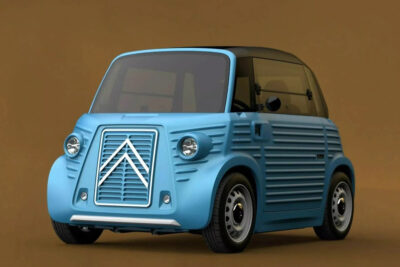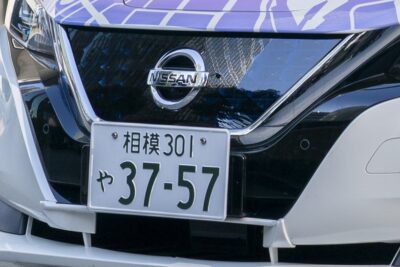Tesla Model Y is no longer the best-selling car in Europe
According to the data, the Model Y achieved 209,214 new registrations in Europe in 2024, a 17 per cent drop compared to 2023. Although this is still enough for the top spot in the BEV model ranking, it only ranks fourth behind the Dacia Sandero, Renault Clio and VW Golf.
Jato does not give a concrete reason for the Model Y’s poorer performance – much is just speculation. For example, it is unclear what role the Tesla image has played following Elon Musk’s political statements – or whether the upcoming premiere of the revised Model Y Juniper has caused buyers to hold back. And finally, there is also the market situation as a whole.
However, two things are clear: The European car market has still not reached pre-pandemic levels (15.79 million new cars in 2019), but is growing slightly to 12.91 million vehicles. And electric cars had a hard time in Europe in 2024, with sales falling by 1.2 per cent to 1,985,996 electric cars. In fact, only full hybrids saw a notable increase in market share of 1.9 per cent. Petrol cars (Jato includes mild hybrids) were able to keep their market share relatively stable at +0.5 per cent – EVs, plug-in hybrids and diesels, on the other hand, lost ground. Across Europe, however, BEVs achieved a higher market share (15.4 per cent) than diesel (14.3 per cent) and HEVs (11.8 per cent).
“A lack of clarity about incentives for BEVs, the high average retail price of new models and low residual values – as well as concerns about charging infrastructure across the continent – are among the reasons behind the decline,” the Jato experts write. “Despite the drop recorded last year, the situation is expected to improve over 2025 as the average price of a BEV continues to fall in Europe, largely due to the introduction of less expensive models from mainstream automakers.”
Norway maintained its top position in 2024, with BEVs having the largest market share (88%). That was followed by Denmark (51%), Sweden (35%) and the Netherlands (34.7%). Denmark, Belgium, Norway, Luxembourg and the Netherlands were the five European countries where BEVs gained the largest market share year-on-year. In Germany (14%), Ireland (also 14%), Finland (30%) and Sweden, however, market shares fell slightly.
The slight decline in EV registrations and simultaneous growth in hybrids have led to changes in the manufacturer ranking. Tesla makes it into the top ten here with a 100 per cent share of electric cars. The Geely Group has a 41 per cent share of electric vehicles, followed by the BMW Group (23%) and Mercedes-Benz Cars (19%). VW Group comes in fifth place with a 13 per cent EV share – but with 427,000 new BEVs in Europe, VW is still the largest electric car manufacturer in terms of unit sales.
The latter is also in the lead across all drive types – however, a new manufacturer, Toyota, has moved up to second place. The Japanese’s recipe for success continues to be full hybrids: 74 per cent of Toyotas sold in Europe had this drive system. 17 per cent were pure combustion engines (incl. MHEVs), with VW accounting for 80 per cent. 5.2 per cent of Toyota’s sales were plug-in hybrids. At the same time, the Jato statistic only includes 3.2 per cent of battery-electric cars – by far the lowest figure among the ten largest manufacturers.
Incidentally, VW’s wide range of models was responsible for the good electric sales. Tesla took the top two places in the BEV ranking with 209,214 Model Y and 112,789 Model 3 – however, the 12 per cent increase in Model 3 sales could not compensate for the 17 per cent decline in Model Y sales. With 78,032 units, the Volvo EX30 is in third place, followed by the Skoda Enyaq, VW ID.4 and ID.3, the first VW models. BMW made it into the top 20 best-selling models with the iX1 and i4, Mercedes with the EQA and EQB.





0 Comments